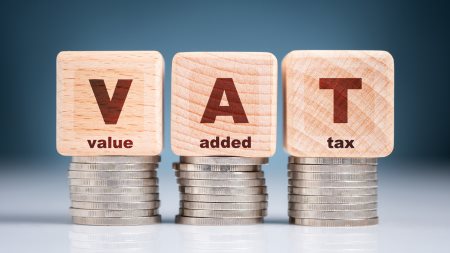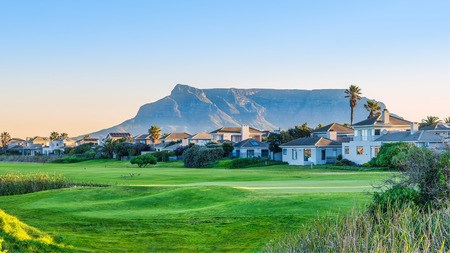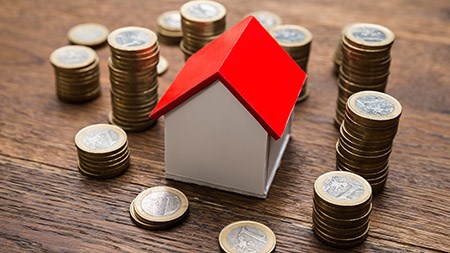The inclusion of a VAT increase of 0.5% for 2025 and another 0.5% in 2026, in the Minister of Finance’s 2025 Budget, was challenged by parties within the GNU, causing a delay in not only the announcement of the Budget but also its implementation.
It remains a bone of contention for the Democratic Alliance that will file papers in the Western Cape High Court to challenge Parliament’s decision, but for now the first increase will be in effect from 01 May.
Regardless of which political parties objected or accepted a VAT increase, its effect on ordinary South Africans will be tough financially. Any percentage increase in VAT will create a rise in the cost of living, and, as that increases, households will have less disposable income.
This is income that may have been crucial to the realisation of home ownership dreams for those who had begun to feel optimistic around the interest rate decreases up to January this year (that now sits at 7.5%), and for those who are already struggling to meet their existing home loan repayments.
Aside from the short-term impacts, VAT increases bring about long-term effects. If vulnerable populations are unable to manage their monthly expenses, they may ultimately become dependent on government subsidies in their later years. As is already the case, the government struggles to cope with these dependencies, so any further weight will need to be catered for.
Whilst the VAT hike does come with a revised list of zero-rated goods (now including edible offal of some animals, dairy liquid blends, and certain tinned or canned vegetables), these are not necessarily the choice of those who are already struggling to provide nutritious meals to their families. Sacrifices and alternatives will have to be made and found, and this will lead to reduced spending and lower savings.
Jonathan Kohler, Founder and CEO of Landsdowne Property Group makes the point that this may delay property purchases, or change the type of homes sought by buyers, who will be endeavouring to find better value for money. “Tenants may also need to downsize to more affordable properties, which will affect activity in the residential property market.”
Tenants and rentals
VAT does not directly impact on tenants as the letting of a property is exempt from VAT. What will, however, is utility charges such as electricity, water, sanitation and refuse removal, and any maintenance and management fees. The resulting impact may cause rental arrears for tenants who are bound by their tenancy agreement and struggling to keep afloat.
Their choice may be to downsize to a smaller property rental, which in turn may increase demand in the residential housing sector, and reduce demand for the mid- to higher-end priced rentals.
Buyers impact
Buyers will be impacted, most especially in terms of the commission paid to estate agents and for the supply of conveyancing services, such as transfer duties and other transaction costs.
Samuel Seeff, chairman of the Seeff Property Group, points out, however, that properties subject to VAT are typically those purchased from developers, such as new apartment blocks or estates; in other words, new properties. “Assuming the price before VAT is R1.3 million, this would see an effective increase of R26,000 on the purchase price alone.”
Alongside will be increases in the cost of construction materials, which will likely translate into higher home prices. If residential properties’ prices increase, buyers may pull out of the market and opt to rent instead and this will put pressure on rental prices.
Swings and roundabouts
The anticipated initial impact of the 0.5% increase in VAT for 2025, is that of slowing housing market activities. The expectation at the beginning of the year, was that SA’s housing market would continue its shift from a seller’s to a buyer’s market, but historically a VAT increase has the potential to turn a market more towards sellers due to a reduction in demand.
Advice for buyers and renters
Kohler provides some tips for buyers and tenants:
Buyers:
Buy before prices rise: Those considering buying a home should act before the VAT hike takes effect to avoid paying more.
Consider existing properties: VAT mainly applies to new developments, so purchasing an existing home could help buyers avoid the extra tax.
Secure a good home loan: Consulting a mortgage expert early can help buyers lock in a favourable interest rate before market changes.
Improve your credit score: A higher credit score increases the chances of home loan approval. Paying bills on time, reducing debt, and keeping credit card balances low can all help. Banks generally prefer scores of 610 or higher.
Save for a deposit: While some banks offer 100% home loans (especially for first-time buyers), putting down a deposit of 10–20% can improve the chances of approval and reduce long-term costs.
Tenants
Noting that tenants will likely see higher electricity and water bills due to the VAT increase, other strategies for renters include:
Solar: Look for properties with solar power or other cost-saving features.
Negotiating rent: Some landlords may be open to discussions, especially for long-term tenants.
Exploring more affordable options: Moving to a lower-cost area or a smaller property could ease financial pressure.
Acting quickly: With more people looking for budget-friendly homes, being ready to sign when the right rental becomes available can prevent missing out.
Kohler also mentioned that although the South African Reserve Bank’s hawkish stance on interest rates have tempered expectations of significant cuts, consumer confidence in the housing sector remains the highest in a decade, with many investors and buyers still feeling optimistic about the future.
“However, with the muted VAT increase filtering through the economy in coming months, both buyers and tenants will need to adjust their strategies to remain financially secure in a market that is likely to experience rising costs and a shallower than expected interest rate cycle.”




